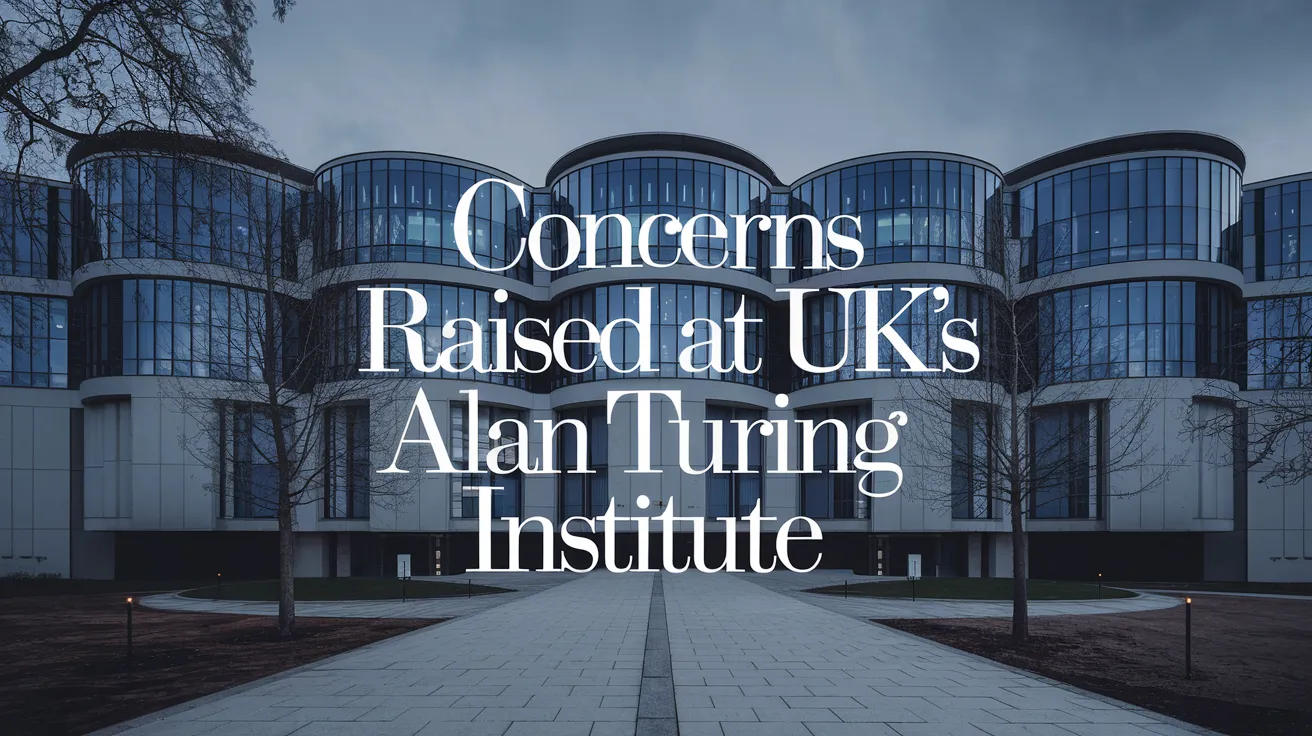Concerns Raised at UK’s Alan Turing Institute

The Alan Turing Institute (ATI), the UK’s leading artificial intelligence (AI) organization, is facing internal turmoil as staff members lodged a whistleblower complaint regarding the institution’s governance and culture. The concerns were directed to the Charity Commission, underlining that the institute could potentially face collapse due to government pressures surrounding its funding.
Government Pressure and Internal Concerns
Minister of State for Technology, Peter Kyle, recently intervened, pushing ATI to reevaluate its strategic priorities and leadership. In their complaint, ATI employees outlined eight pressing concerns, suggesting that the board, chaired by former Amazon UK chief Doug Gurr, has failed to fulfill essential legal responsibilities such as offering clear strategic direction and maintaining accountability.
Reportedly, staff have circulated a letter of no confidence regarding current leadership, which they claim has gone unaddressed, exacerbating frustrations within the organization.
Impact of Restructuring
As part of a restructuring effort, ATI notified approximately 50 employees—around 10% of its workforce—that their positions were at risk of redundancy. The organization’s funding stability has been questioned by unnamed industry partners, and there are signals from Kyle that future governmental support will depend on satisfactory improvements in output and leadership transformations.
In a recent letter to Gurr, Kyle emphasized a redirection of ATI’s focus towards defence and national security, alongside calls for leadership changes. While he acknowledged that ATI should receive necessary funding to implement these reforms, he cautioned that their longer-term financial arrangements might undergo reevaluation next year.
Claims of Toxic Culture
The whistleblower complaint alleges a pervasive culture of “fear, exclusion, and defensiveness” within the institute, countering its mission and undermining its credibility with staff, funding bodies, and external partners. Furthermore, the complaint highlights inadequate oversight regarding recent high-level departures and appointments during CEO Jean Innes’s tenure.
The complaints point towards a deteriorating public and internal perception of the institute, reinforcing the urgent need for accountability and better governance practices.
Project Closures and Program Cuts
The upheaval has also led to the discontinuation of several notable projects. ATI is moving to close programs related to online safety, housing crisis solutions, and health inequalities as part of its restructuring. These closures include initiatives aimed at developing AI functionalities to detect online harms and measuring the societal impacts of policies like lockdowns.
Projects examining social bias outcomes in AI and the intersection of AI with human rights and democracy are also being halted or paused. A spokesperson stated that ATI is revitalizing its focus to address pressing societal challenges, particularly in the areas of national security and defense capabilities.
Future Path for the Institute
In response to the unfolding situation, ATI has remarked on their commitment to evolving towards a new configuration that effectively meets the UK’s needs in data science and AI. However, there are calls for a comprehensive assessment of existing governance structures to ensure that future innovations are not hindered by internal disarray.
As the situation develops, it remains crucial for ATI to navigate these challenges effectively while restoring confidence among staff and stakeholders alike.